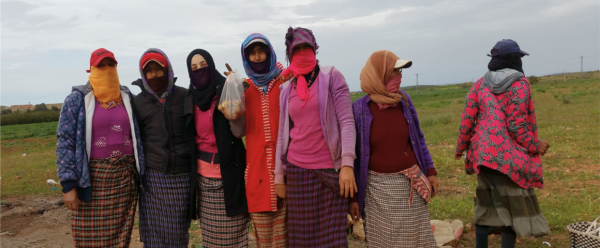Just out 30 January 2026
- Home
- CIRAD news
- News
- Combatting imported deforestation
Combatting imported deforestation – challenges for science

Degraded forest in northern East Timor © CIRAD, A. Rival
Five priority lines of research have been pinpointed:
- Scope and definitions: what do we mean by deforestation? What is classed as forest? As things stand, an international definition supplied by FAO applies to all the forests in the world, independently of the eco-region and national circumstances. It is vital to establish an internationally agreed definition of what constitutes forest, in all its complexity and diversity.
- Monitoring and traceability: a strengthened monitoring system will help informed decisions and assess the impacts of measures taken to combat imported deforestation. Reliable traceability systems remain to be built, as does a connection between remote sensing tools and statistical tools that provide information on material and financial trade flows. There are also knowledge gaps in terms of the techniques used to monitor forest degradation and the of natural forests to plantation forests.
- A mix of policy measures: deforestation prevention, by both producing and importing countries, requires not just one instrument, but a raft of interacting policy measures. The aim is also to learn from past measures, such as the EU Timber Regulation, the FLEGT initiative, bilateral free trade agreements on specific commodities, or the REDD+ mechanism.
- Reorganization of world trade: given the complex, interconnected nature of global trade flows, reducing European imports should serve to restructure trade on a global level. Policy coordination with other major importers is vital to ensure that legislation does not simply shift deforestation to other zones and markets. Studies are also required to determine whether consumers are willing to pay more for deforestation-free products.
- Consideration of the development needs of producing countries and of the constraints they face: this includes issues such as land tenure, climate vulnerability, environmental justice, dependence on agrochemicals, price volatility, etc. Specific attention must also be paid to the development of new production systems that benefit the fight against imported deforestation and to the stability of associated national policy frameworks. The question of land availability for sustainable food production and intensification is also crucial.
Combatting imported deforestation through research requires engagement by various stakeholders, notably funding agencies and policymakers at European Commission and Member State level. The complexity and dynamics of the issues demand a transdisciplinary, multi-actor and multi-level approach.
In particular, research projects must include those countries most affected by European policy on imported deforestation.
The experts recommend a participatory research approach, to come up with concerted, sustainable solutions. Research organizations must be encouraged to work with NGOs, universities, associations, foundations, the private sector, producers, forest managers, governments, development banks, etc, to cover a wide range of perspectives on the issues involved.
Lastly, because of the complexity of the issue and the time needed for transformation, research projects will require longer-term funding.
Combatting imported deforestation - challenges for science
SCAR ARCH & FOREST SWG | 10/2022
Nicolas Picard, Jessica Rebola Lichtenberg, Rune Groven, Emmanuel Albina, Siegfried Harrer
With contributions from other CIRAD experts: Alain Karsenty, Sylvie Gourlet-Fleury, Guillaume Lescuyer and Nicole Sibelet



























